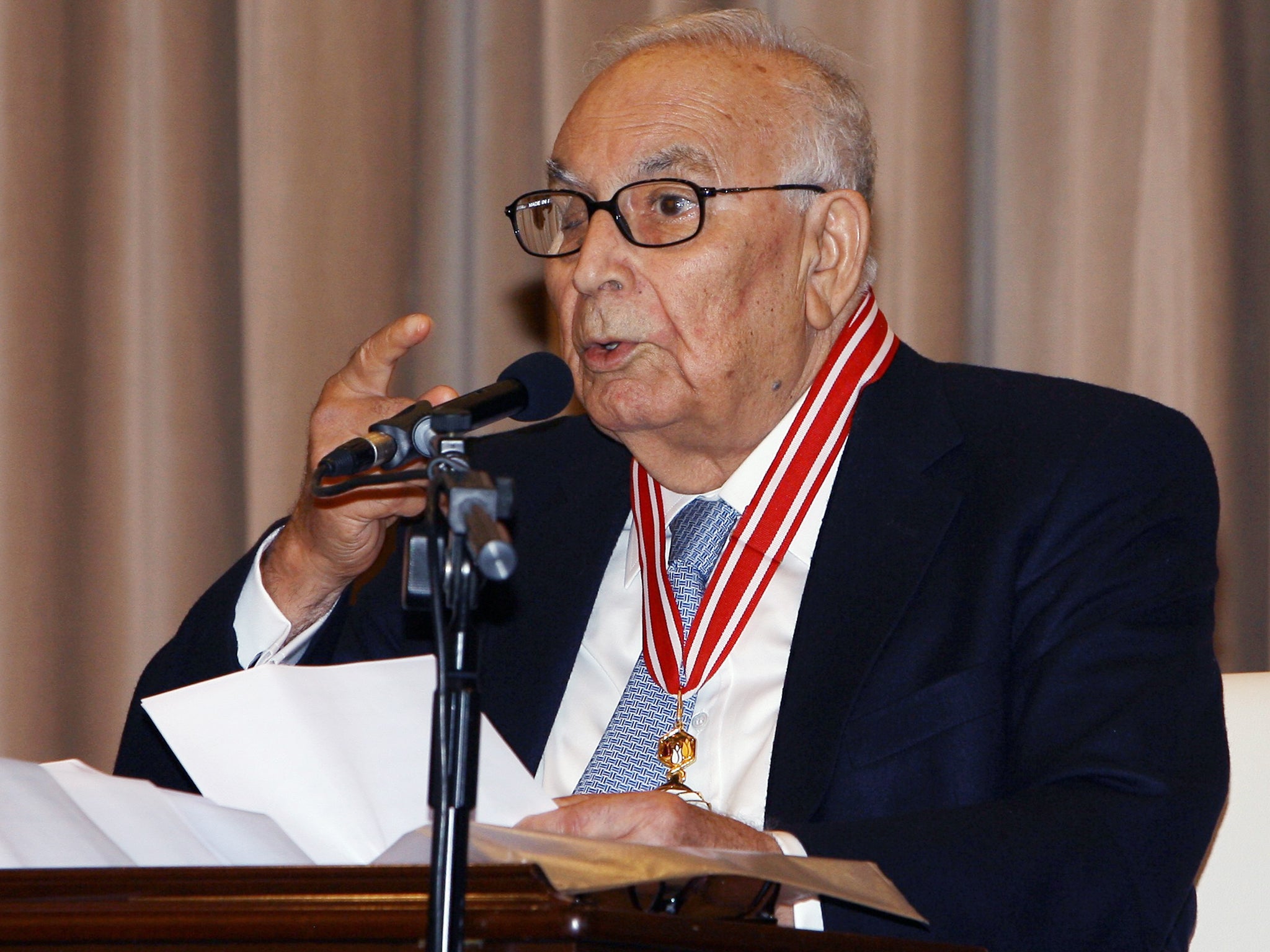Yasar Kemal: Author who came into conflict with Turkey for addressing human rights
'We still have to work very hard to achieve democracy in Turkey, I will continue to write these things until there are no trials against expression'

One of Turkey’s best-known novelists, Yasar Kemal’s focus on social injustices brought him into conflict with authority. Best known for his first novel, Ince Memed, or Memed, My Hawk, turned his pen to promoting Marxism during his early years and defending the rights of minorities in Turkey, including the Kurdish minority of which he was part.
Memed, published in 1955, was based on the troubled feudal relations in Turkey’s southern, agrarian regions where Kemal grew up. Reflecting his leftist views, the book’s young peasant-turned-brigand hero takes a stand against injustices suffered by villagers at the hands of powerful landlords. The character of Memed was drawn in part from Kemal’s memory of his mother’s brother, an outlaw named Mayro – “the best-known outlaw in the eastern Anatolia, Iran and Caucasus areas.”
“Mayro was killed when he was only 25,” Kemal said. “I have heard many lullabies and a lot of national poetry that depict the bravery and heroism of Mayro. Mayro’s adventurous life was quite an inspiration to me when I was a child, and his footprints can clearly be seen in most of my novels.”
Memed was first published in instalments in Cumhuriyet newspaper in 1953 and 1954, where Kemal was a journalist. It won Turkey’s Varlik literary prize in 1956 and was widely translated, as were most of the more than 35 other books he wrote. On its strength, the struggling first novelist found his name circulated as a possible candidate for the Nobel Prize. “It was one of the coldest Istanbul winters ever. I had no money to put wood in the stove,” Kemal said, recalling the time he wrote the novel. “I just pretended that the fire was going strong; I covered myself in a ripped blanket and typed away on an old typewriter that was missing many keys. That’s how I wrote Ince Memed, and this novel is the best memory I kept from that house for which I could not pay the rent.”
Kemal’s ability to delve into human nature and bring out the universal traits in his characters made his novels accessible to all sections of society. Memed and eight other novels were made into films. “My adventures are aimed at exploring the mystery of the human,” he said at an award ceremony at the presidential palace in 2008.
Kemal recalled hearing his father sing Kurdish songs on a hilltop overlooking their village in the southern province of Adana. These were sagas of Kurdish heroism – of wars, lost sons and migrations in past centuries; of nostalgia for lands left behind. However, Kemal did not promote his Kurdish background, and few people knew he was a Kurd. “I’m a Turkish writer – of Kurdish origin,” he said.
But he did speak out during clashes between autonomy-seeking Kurdish guerrillas and Turkish troops in the mid-1990s. Kemal was tried in 1995 under anti-terror laws for an article he wrote for Der Spiegel, accusing the Turkish army of destroying Kurdish villages. He was acquitted, but said, “One person’s acquittal does not mean freedom of expression has arrived. You can’t have spring with only one flower, We still have to work very hard to achieve democracy in Turkey. I will continue to write these things until there are no trials against expression.”

In the same year he received a 20-month suspended sentence for another article for “inciting hatred and promoting racism.”
“I couldn’t sleep at nights for a year,” he said. “I had pangs of conscience. ‘You are a writer. You have to speak up,’ I kept telling myself.”
Although Kemal was not the first writer to be sentenced for writings about the Kurdish issue, his views attracted wider attention. Arthur Miller sent a letter of support to Kemal and called his sentence “a painful absurdity.”
Kemal angrily rejected charges from Turkish ultranationalists that he was a traitor who shouldn’t write in Turkish. “My life has been dedicated to the Turkish language, Turkish culture,” he said. “I don’t want a separate Kurdish state, nobody does. All that the Kurds want is their universal human rights – the right to preserve their language, culture, identity.”
Kemal Sadik Gokceli was born in 1923 – he believed it was sometime in October – in a small village in Adana. He grew up hearing the Kurdish language at home and Turkish outside. He was blinded in his right eye as a child when a knife slipped out of a butcher’s hand. When he was five, he witnessed his father being murdered by his adopted son, jealous of the father’s love for his natural son. Kemal reimagined his father in the autobiographical novel Yagmurcuk Kusu (Rain Bird).
As a teenager he dropped out of school and worked as a farm hand, supply teacher, library clerk, tractor driver and other jobs before moving to Istanbul, where he wrote for Cumhuriyet, taking the pseudonym Yasar Kemal. He joined the Turkish Labour Party in 1962 and founded the weekly Marxist magazine, Ant, in 1967. His “A Guide to Marxism” published in Ant led to charges of promoting communism but his 18-month prison sentence was later suspended.
Kemal’s poems were first published in local newspapers. His first book, Agitlar, or Ballads (1943), was a compilation of folklore he collected during his travels.
Kemal won numerous international awards including the Legion d’honneur. “I don’t write about issues, I don’t write for an audience, I don’t even write for myself. I just write,” he said in 2008. “Yes, there is rebellion in my novels, but it’s rebellion against mortality. As long as man goes from one darkness to another, he will create myths for himself. The only difference between me and others is that I write mine down.”
Kemal Sadık Gokceli (Yasar Kemal), author: born Gokcedam, Osmaniye, Ottoman Empire 6 October 1923; married 1952 Thilda Serrero (died 2001; one son), 2002 Ayse Semiha Baban; died Istanbul 28 February 2015.
Join our commenting forum
Join thought-provoking conversations, follow other Independent readers and see their replies
Comments
Bookmark popover
Removed from bookmarks